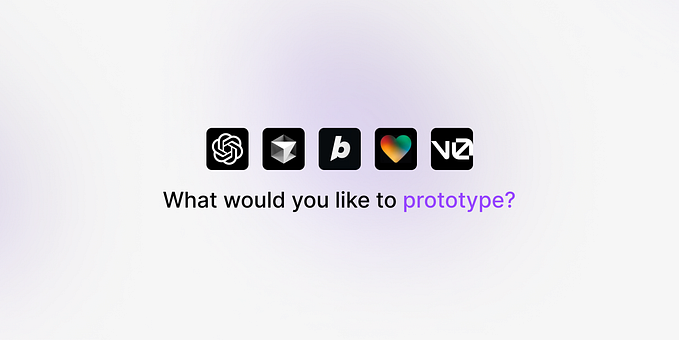Why Research?
No, honestly, have you ever tried to answer this question?

Even better, have you ever tried to explain in detail the purpose of research to a non-researcher? It might be more important and difficult than you think. I recently tried, and (full disclosure) it was not easy at all. But here’s my humble attempt to answer this question anyway and the reason I think it is important.
I know what you are thinking, “well, duh, research is how we find answers to our questions”. Sure, but then is very easy to argue that any method that we might follow to answer our questions can be called research. In fact, that is exactly what most people do. Googling stuff or asking around is very often represented as research because, under the definition up there, it is. Another interesting byproduct of this simplistic definition of research is that other things such as personal experience or intuition are often presented not just as the valid, potential avenues to acquire knowledge and inputs of research that they are but as the research itself. “I did my own research” has become a motto for science denialism but it is in no way exclusive of this mindset. You might have never experienced this same shallow understanding of research in the private sector and, if you haven’t, congratulations. But please know, that comparing one person's experience to research is way more common than you think.
Understanding “why Research” is not difficult but it requires explanation because Research is not really intuitive. In some cases it can be exactly the opposite
Research vs. research
I would start by trying to differentiate research (lowercase r, the search for answers) from Research (capital R, the thing that professional researchers do), not as a way of presenting a hierarchy but rather to show that although research is part of Research, it is certainly not all of it (by the way, if you have a better way of presenting these two concepts, please let me know). Is this necessary? Maybe not, but I do think that because we use research all the time, we assume that people would somehow intuitively know what Research is or implies. So much so, that suggesting the need to explain the latter might feel offensive because everyone seems to know what the former is. Almost as if you were impugning people’s intelligence by even suggesting the idea of explaining it. Have you noticed it? I mean, maybe it is just me but this wouldn’t be the first time something like this happens. Think about the word theory and the meanings it has, both as an abstract model to explain a phenomenon and, as the opposite of practice, which leads to a sense of unverifiability.
Understanding why Research is not difficult but it requires explanation because Research is not really intuitive. In some cases, it can be exactly the opposite. It requires patience and a real interest to share knowledge from whoever does the explanation. But it also requires the ability to communicate potentially dense and complex information in a clear, accessible way (this is particularly challenging for me, and it might require an article in itself). Of course, it takes two to tango, as they say. Understanding why Research requires actual curiosity from the other side and it requires maturity to recognize when you really don’t know something.

Ok, so why Research then?
We are now clear about what we are talking about and what we are not. There are many flavours of Research (basic, applied, “blue-sky”, etc.) and potential definitions, but they might not explain the why question. Now, it doesn’t really matter how clear it is for you, my fellow researcher. Many people in leadership positions (some of which might even have researchers hired at their companies) do not know what Research is or why it is needed. Even when some might think they do.
Research (capital R) is the most reliable tool of the scientific method, which might not read super exciting for many. But the scientific method, for the most part, is oriented towards the development of models that would allow us to replicate outcomes. What can be more exciting than that? In a nutshell, Research is a predictability tool. A tool that has been purposefully riddled with safeguards and protocols to prevent us from falling for our own biases. Why? Because we want our models to be as error-free as possible for we, people, cannot. We all have biases, this is part of human nature. Biases actually are, for better or worse, intuitive. To put it another way, Research is the best way we have found (so far) to prevent us from boycotting our future selves. 🤷
You might be thinking that everyone knows this, particularly if you are transitioning from academia into the private sector. You might think that spending time trying to explain why Research is pretty pointless. However, if you have ever encountered phrases like “I know what the research says but I talked to a friend…” or “sure, the research is there but in my own experience…”, you already know this is not the case.
Hesitance towards research insights from stakeholders in non-research leadership positions often comes from ignorance about the role of Research and the rigour of its methods
And why does it matter?
Well, personally, I think it matters for many different reasons but I will focus on one in particular. If the organization you work for does not understand what you do, it is harder for them to know what to expect and, maybe more importantly, what NOT to expect from you. Hesitance towards research insights from stakeholders in non-research leadership positions often comes from ignorance about the role of Research and the rigour of its methods. Some of these stakeholders might actually think that your research findings are a matter of personal opinion and question why is it that your opinion matters more than their personal experience. This would be of course a misunderstanding of your craft, but you can’t blame them for being uneducated in the topic, particularly if no one has taken the time to explain Research to them. I can also understand why we tend to overlook these misunderstandings. We don’t want to offend people by suggesting they don’t understand something they might think they understand. But protecting their ignorance can come at a cost not just for us as researchers but also to them and their organizations.
So, my advice is: Work on your own answer to this question and make it available to everyone at your organization. Add examples, case studies, quotes, whatever makes it clear and interesting. We are talking about a predictability tool! isn’t that the most exciting thing ever? There are tons of resources out there to support your answer. I highly recommend Research Practice by Gregg Bernstein and the series Great User Research (for Non-Researchers) by Steve Portigal.









